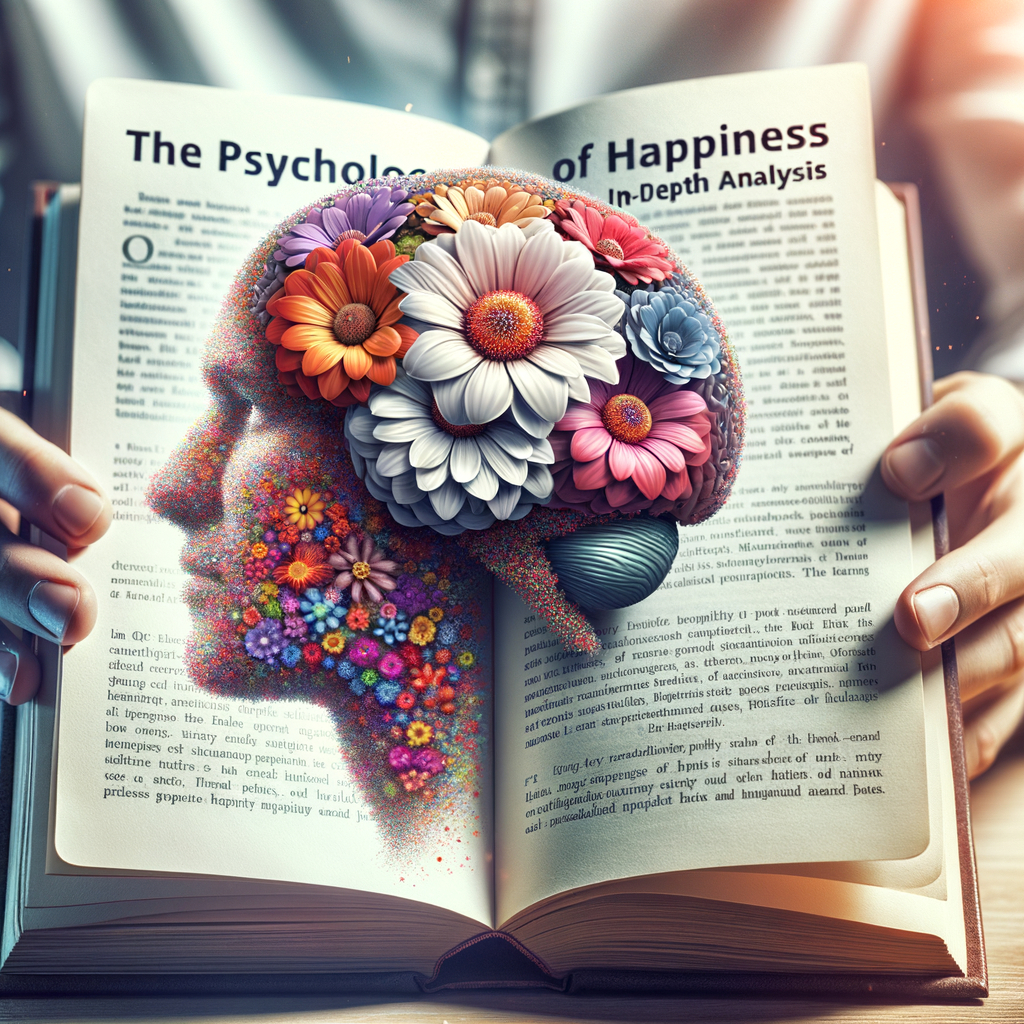Physical Address
304 North Cardinal St.
Dorchester Center, MA 02124
Physical Address
304 North Cardinal St.
Dorchester Center, MA 02124

Understanding the psychology of happiness is a fascinating journey into the human mind. It’s about exploring what makes us feel good, why it does, and how we can cultivate these positive feelings in our daily lives. This article delves deep into this topic, revealing the science behind happiness and offering insights on how to nurture it.
Psychologists define happiness as a state of well-being that encompasses living a good life—one with a sense of meaning and deep satisfaction. While there are many theories on happiness, two main psychological perspectives stand out: hedonic and eudaimonic.
The hedonic perspective focuses on pleasure attainment and pain avoidance. It’s about seeking immediate gratification or relief from discomfort. This perspective views happiness as a series of pleasant moments.
On the other hand, the eudaimonic perspective sees happiness as having purpose and direction in life—achieving personal growth and understanding oneself better. It’s not just about experiencing positive emotions but also about personal fulfilment.
Neuroscience has identified specific areas within our brain associated with happiness—the prefrontal cortex, amygdala, insula, and hippocampus. These areas regulate mood, stress responses, reward circuits, memory formation and emotion processing. Neurotransmitters like dopamine (the ‘reward’ chemical), serotonin (the ‘feel-good’ chemical), oxytocin (the ‘bonding’ hormone) play crucial roles in our experience of joy.
Research suggests that genetics accounts for approximately 50% of our disposition towards happiness—known as our “set point.” Like height or eye colour, we inherit a predisposition towards a certain level of happiness. However, this doesn’t mean our happiness level is fixed. It means that we have a baseline of happiness to which we tend to return after positive or negative life events.
External factors such as income, social status, and physical health account for about 10% of our happiness levels. While these aspects can influence our state of well-being, they don’t have as much impact as one might think. This is often referred to as the ‘hedonic treadmill,’ where people quickly adapt to improved circumstances and return to their baseline level of happiness.
Interestingly, about 40% of our happiness levels are within our control—the choices we make, the activities we engage in, and the thoughts we entertain. Cultivating positive emotions, practising gratitude, fostering relationships, engaging in meaningful activities—all contribute significantly towards enhancing this controllable portion of our happiness quotient.
Mindfulness—a mental state achieved by focusing one’s awareness on the present moment—plays a pivotal role in nurturing happiness. By being fully present in each moment instead of worrying about the past or future, individuals can increase their capacity for joy and reduce stress.
Resilience—the ability to bounce back from adversity—also contributes significantly to sustained happiness. Research shows that resilient individuals not only recover from setbacks quicker but also exhibit higher levels of positivity during challenging times.
A wealth of studies has shown that strong social connections are key drivers for happiness. Humans are inherently social creatures; hence building deep relationships with others fulfils an essential psychological need leading to increased satisfaction and well-being.
Understanding the psychology of happiness allows us to take proactive steps towards cultivating it in our lives. By practising mindfulness, nurturing resilience, fostering strong social connections, and engaging in activities that bring joy, we can significantly enhance our happiness quotient.
Remember that happiness is a journey, not a destination. It’s about appreciating the small joys of life while striving for personal growth and fulfilment. Embrace the eudaimonic perspective—seek purpose and meaning beyond momentary pleasures for sustained happiness.
In essence, the psychology of happiness reveals that while certain factors influencing our well-being are out of our control (genetics, external circumstances), a significant portion lies within our power. By understanding this balance and working towards enhancing what’s within our control, we can lead happier, more fulfilled lives.